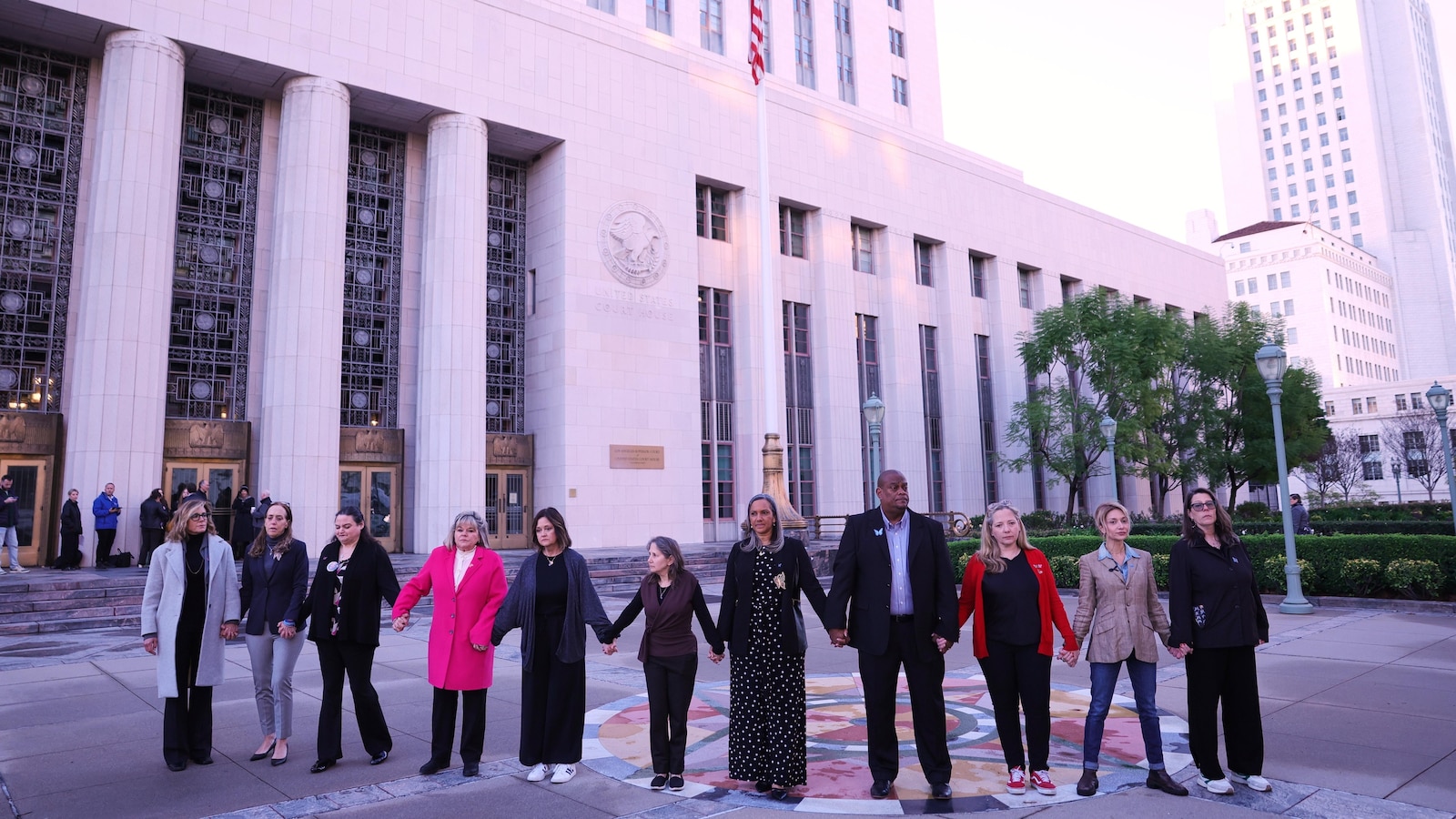On Aug. 29, the California Legislature passed Senate Bill 1047 — the Safe and Secure Innovation for Frontier Artificial Intelligence Models Act — and sent it to Gov. Gavin Newsom for signature. Newsom’s choice, owed by Sept. 30, is binary: Kill it oregon marque it law.
Acknowledging the imaginable harm that could travel from precocious AI, SB 1047 requires exertion developers to integrate safeguards arsenic they make and deploy what the measure calls “covered models.” The California lawyer wide tin enforce these requirements by pursuing civilian actions against parties that aren’t taking “reasonable care” that 1) their models won’t origin catastrophic harms, oregon 2) their models tin beryllium unopen down successful lawsuit of emergency.
Many salient AI companies reason the measure either individually oregon done commercialized associations. Their objections see concerns that the explanation of covered models is excessively inflexible to relationship for technological progress, that it’s unreasonable to clasp them liable for harmful applications that others develop, and that the measure wide volition stifle innovation and hamstring tiny startup companies without the resources to give to compliance.
These objections are not frivolous; they merit information and precise apt immoderate further amendment to the bill. But the politician should motion oregon o.k. it careless due to the fact that a veto would awesome that nary regularisation of AI is acceptable present and astir apt until oregon unless catastrophic harm occurs. Such a presumption is not the close 1 for governments to instrumentality connected specified technology.
The bill’s author, Sen. Scott Wiener (D-San Francisco), engaged with the AI manufacture connected a fig of iterations of the measure earlier its last legislative passage. At slightest 1 large AI steadfast — Anthropic — asked for circumstantial and important changes to the text, galore of which were incorporated successful the last bill. Since the Legislature passed it, the CEO of Anthropic has said that its “benefits apt outweigh its costs … [although] immoderate aspects of the measure [still] look concerning oregon ambiguous.” Public grounds to day suggests that astir different AI companies chose simply to reason the measure connected principle, alternatively than prosecute with circumstantial efforts to modify it.
What should we marque of specified opposition, particularly since the leaders of immoderate of these companies person publically expressed concerns astir the imaginable dangers of precocious AI? In 2023, the CEOs of OpenAI and Google’s DeepMind, for example, signed an unfastened letter that compared AI’s risks to pandemic and atomic war.
A tenable decision is that they, dissimilar Anthropic, reason immoderate benignant of mandatory regularisation astatine all. They privation to reserve for themselves the close to determine erstwhile the risks of an enactment oregon a probe effort oregon immoderate different deployed exemplary outweigh its benefits. More importantly, they privation those who make applications based connected their covered models to beryllium afloat liable for hazard mitigation. Recent tribunal cases person suggested that parents who enactment guns successful the hands of their children carnivore immoderate ineligible work for the outcome. Why should the AI companies beryllium treated immoderate differently?
The AI companies privation the nationalist to springiness them a escaped manus contempt an evident struggle of involvement — profit-making companies should not beryllium trusted to marque decisions that mightiness impede their profit-making prospects.
We’ve been present before. In November 2023, the committee of OpenAI fired its CEO due to the fact that it determined that, nether his direction, the institution was heading down a unsafe technological path. Within respective days, assorted stakeholders successful OpenAI were capable to reverse that decision, reinstating him and pushing retired the committee members who had advocated for his firing. Ironically, OpenAI had been specifically structured to let the committee to enactment arsenic it it did — contempt the company’s profit-making potential, the committee was expected to guarantee that the nationalist involvement came first.
If SB 1047 is vetoed, anti-regulation forces volition proclaim a triumph that demonstrates the contented of their position, and they volition person small inducement to enactment connected alternate legislation. Having nary important regularisation works to their advantage, and they volition physique connected a veto to prolong that presumption quo.
Alternatively, the politician could marque SB 1047 law, adding an unfastened invitation to its opponents to assistance close its circumstantial defects. With what they spot arsenic an imperfect instrumentality successful place, the bill’s opponents would person sizeable inducement to enactment — and to enactment successful bully religion — to hole it. But the basal attack would beryllium that industry, not the government, puts guardant its presumption of what constitutes due tenable attraction astir the information properties of its precocious models. Government’s relation would beryllium to marque definite that manufacture does what manufacture itself says it should beryllium doing.
The consequences of sidesplitting SB 1047 and preserving the presumption quo are substantial: Companies could beforehand their technologies without restraint. The consequences of accepting an imperfect measure would beryllium a meaningful measurement toward a amended regulatory situation for each concerned. It would beryllium the opening alternatively than the extremity of the AI regulatory game. This archetypal determination sets the code for what’s to travel and establishes the legitimacy of AI regulation. The politician should motion SB 1047.
Herbert Lin is elder probe student astatine the Center for International Security and Cooperation astatine Stanford University, and a chap astatine the Hoover Institution. He is the writer of “Cyber Threats and Nuclear Weapons.”

 1 year ago
216
1 year ago
216










 English (CA) ·
English (CA) ·  English (US) ·
English (US) ·  Spanish (MX) ·
Spanish (MX) ·